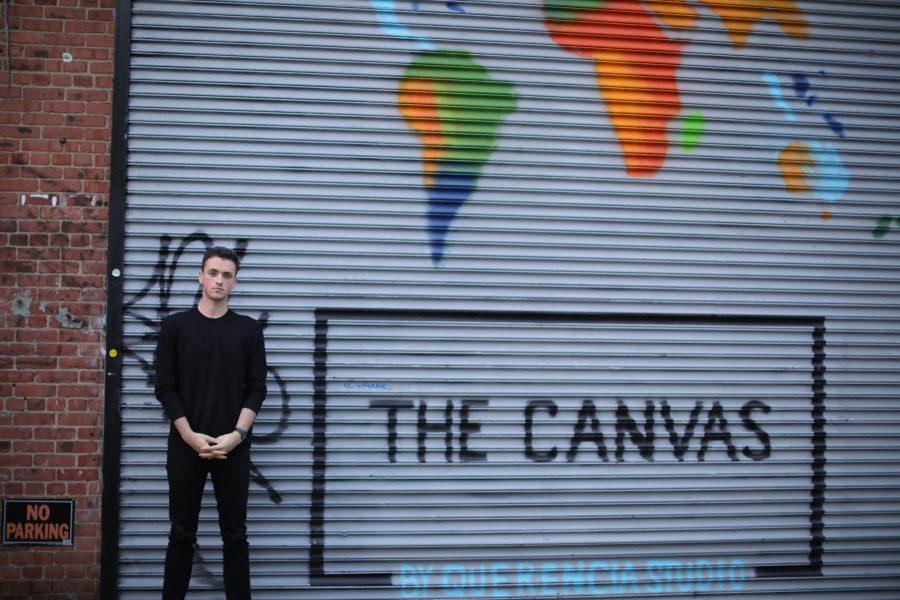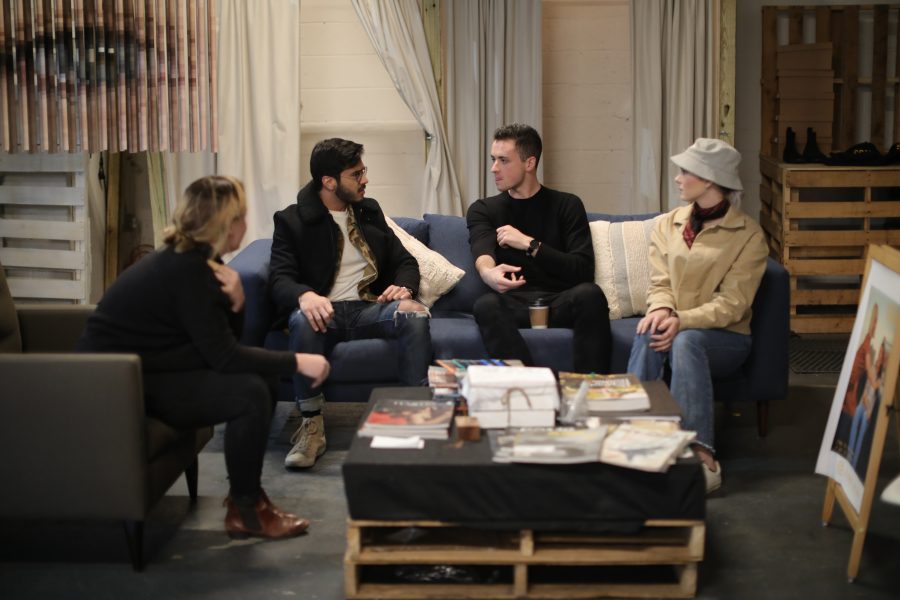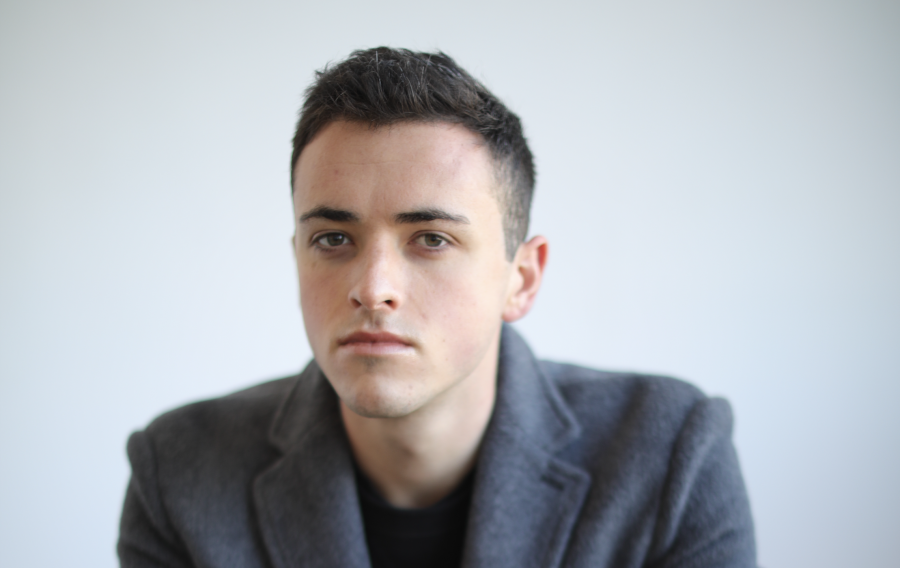Editor’s Note: This article has been updated and WSN regrets the errors.
Devin James Gilmartin has a name that rings with potential. By the age of 22, Gilmartin has co-founded two successful sustainable fashion businesses — Querencia Studio and The Canvas by Querencia Studio — dedicated to helping meet the United Nations’ Sustainable Development Goals. This month, they’re focusing on poverty.
When Gilmartin isn’t at the office, he is usually hanging out with his co-workers or going to a hot yoga class. Although he once dreamed of playing basketball with the Brooklyn Nets, now Gilmartin is content going to yoga every week and running the New York Marathon once a year, a race he promises he doesn’t train for.
At NYU, Gilmartin is planning to pursue a degree from Gallatin in Russian Literature. When asked why Gilmartin chose such a unique concentration, he responded:
“When you study something in college, you are placing a bet that it will be relevant in the future … I’m placing a bet that Russian language and Russian culture and literature and history will be very relevant for understanding the world.”

In 2016, Gilmartin and his now-best friend, Tegan Maxey, co-founded a sustainable fashion brand called Querencia Studio. The brand features trendy plain white T-shirts with the word ‘unsubscribe’ in a simple, sans-serif font and avant-garde earth suits designed by in-house designer Kate Walz, all of which aim to address the social and environmental issues facing the fashion industry using the United Nations’ Sustainable Development Goals.
Querencia Studio also claims on its website to be a collaborative endeavor that makes an effort to read a broader and more diverse community. While Maxey mostly handles the financials, Gilmartin is nearly solely responsible for the marketing. Although the company is fairly young, Gilmartin and Maxey have already had their clothes shown around the world by famous models like Cara Delevingne and even got the opportunity to speak at the U.N. about sustainability.
Gilmartin was confident in his abilites to self-start the business and did not feel the need to consult his parents for advice.
“You shouldn’t feel like you need to ask adults for permission to do certain things … Starting [a business] is one of those things.”
As he was beginning his business with Maxey, Gilmartin went to London to earn a Foundation Degree in Fashion from London College of Fashion at the University of the Arts London. Because Querencia Studio was still in New York, he was constantly traveling and taking phone calls at odd hours of the day due to the time change. As for how he managed it all, Gilmartin attributes his success to pragmatism.
“I don’t have a motto,” Gilmartin said. “But if there’s a principle I live by, it’s efficiency.”
As it turns out, Gilmartin also lives by an intensely detailed and regimented schedule that he keeps in his iPad’s Notes app. Here, he has distilled his whole life down to conference calls and hot yoga sessions, leaving little to no room for free time.
Along with Querencia Studio, Gilmartin and Maxey also manage The Canvas by Querencia Studio, “a brand for brands” that offers floorspace in their Williamsburg retail location to fashion and art companies dedicated to sustainability. Along with the brands they manage, The Canvas also gives the floor to certain art pieces and occasionally hosts speakers and other sustainability gatherings. In order to afford their space in their prime location, Gilmartin and Maxey hold a rent share agreement with their landlord. Instead of keeping the warehouse space vacant and under-used, their landlord rents the space in exchange for a percentage of their profits as well as utilities and the cost of any renovations.
Despite its launch only a year and a half ago, The Canvas has surpassed $400,000 in revenue this fiscal year. The company is quickly expanding and the founders are soon opening another location in Antwerp, Belgium.

Gilmartin says his secret is chaotic energy.
“Three and a half years into starting the original company and a year and a half now into The Canvas, chaotic energy is simultaneously what has caused us all our problems, or fires as we label them, and allowed us to evolve and grow and define our business each and every day.”
On campus, Gilmartin is co-president of the Future Fashion Group at NYU, a club that hosts panels and discussions on everything related to sustainable fashion and the future of the industry. And while it’s difficult to believe he has any time to participate, Gilmartin promises that it fits neatly into his schedule.
This is generally how Gilmartin answers questions. Upon hearing a personal line of questioning, Gilmartin would, after a slight pause, reply both methodically and diplomatically.
“I don’t speak without thinking,” he admitted.
And while Gilmartin was more than happy to talk about his business ventures, he was less forthcoming about answering questions of a personal nature. Numerous times throughout the interview, he requested that information such as which borough he lived in and whether or not he had dogs be stricken from the record.
“I appreciate privacy,” Gilmartin said. “I really like privacy.”
With his coworkers at The Canvas, Gilmartin tends to be less guarded, but his co-founder and best friend, Tegan Maxey, notes Gilmartin’s more extroverted side is not easily accessible.
“When I first met Devin, it took a while for him to start opening up and we talk a lot about how close we are as founders and as friends,” Maxey says. “When Devin and I first started the company, I think both of us were going through quite hectic times personally and so in a lot of ways it forced us to be very open with each other and upfront.”
Maxey clarified that her and Gilmartin have an atypically close relationship:
“The way that we opened up to each other very early on is not the normal for him,” Maxey says. “He is exceptionally private until he decides that he trusts someone and then he is as open as anyone can possibly be.”
Kate Walz, Querencia Studio’s head designer, said that she did not have the same immediate connection with Gilmartin as Maxey. It was only until somewhat recently, three years into their relationship, that Walz thought Gilmartin and her were close.
“We had come from a dinner at Devin’s family’s house and that’s when I kind of realized he was comfortable with me,” Walz says. “I’ve [since] realized that I probably know a lot more about Devin than most people do.”
When asked if there’s anything else he’d rather be doing, Gilmartin firmly says that there is not.
“I would say that this is doing everything I’d want to be doing right now. Like the opportunities … for example, we’re going to Cuba on Wednesday and we’ll be there for five days. We’re meeting with one of our brands and speaking on a panel but then we’ll just be in Cuba learning about the culture,” Gilmartin said. “So [this business] is sort of a vehicle for doing all these great things that we would otherwise do personally.”
Gilmartin is quite possibly on his way to a successful career in sustainable fashion. And whether he agrees or not, he certainly has influence over those around.
“I don’t take anything for granted. I think that there’s a huge opportunity for everyone who’s alive right now to make use of the networks and resources that we have in a very positive and useful way, and that starts with technology,” Gilmartin said. “So I think what I do right now is what we all do in some capacity, which is to connect dots and connect people and connect with people using the unbelievable situation that we’re in, which is incredible.”
At The Canvas, there didn’t appear to be a dull moment for him. He was always checking on something or texting someone. After all, just as the city, businesses never sleep.
“I think Devin would be more stressed out with less things to do,” Maxey said in an interview. “The most stressed I’ve ever seen him is when he is idle.”
Email Under the Arch at underthearch@nyunews.com.


























































































































































